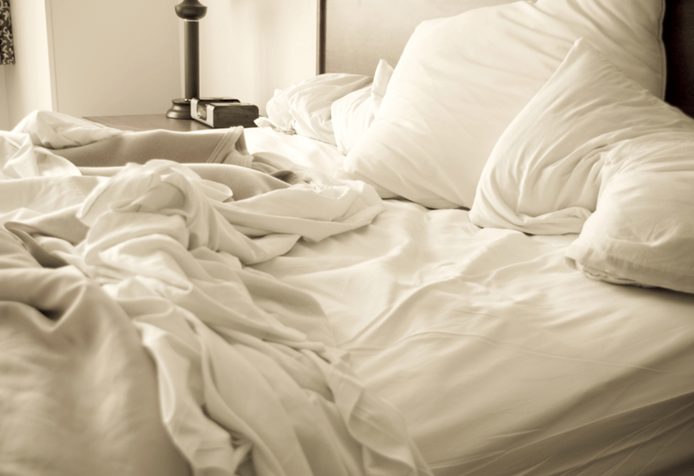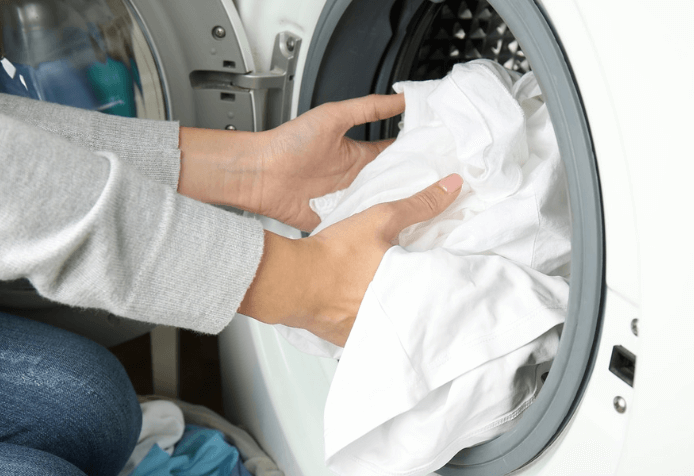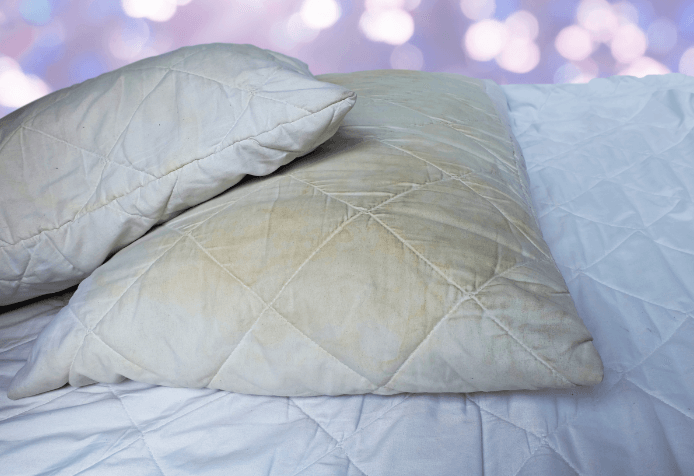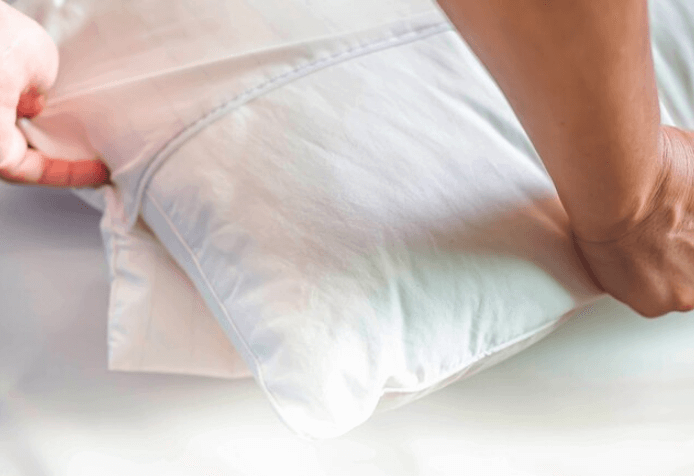I was recently horrified to learn my brother only washes his sheets annually. It turns out, he’s not alone.
A 2020 Choice Facebook survey found that while almost half (approx. 49.4%) of the 1001 respondents washed their sheets weekly, 13 people confessed to only putting bedding through the machine once a year!
What about you? And what other bedding blunders do most people make?
Why Do I Need to Wash My Bedding Regularly?

Each night as you sleep, you secrete sweat, saliva, a day’s worth of grime and most concerning of all, thousands of dead skin cells (about 1kg a year!).
That’s a smorgasbord of bacteria accumulating in your bedding while the skin cells that slough off our bodies become a food source for dust mites.
So, why are dust mites so bad?
Dust mites love dark, warm environments where there is a constant supply of food. They excrete twice their body weight per day, droppings which contain toxins that can cause respiratory, allergic and skin issues.
To give you an idea of dust mites’ bearing on our bedding, Perth-based respiratory expert Professor John Blakey recently told The Guardian that more than 10% of the weight of most dirty pillows will be hundreds of thousands of dust mites and their droppings. Keeping your bedding clean will ensure dust mites, skin cells and bacteria stay away from your bedroom. A healthy mattress free of dust mites definitely equals a good night's sleep!
We can help you out.
Here are the four worst mistakes you’re making when it comes to keeping your sleep haven healthy and how you can turn things around.
1Not Washing Sheets Enough

You should be washing your sheets at least once a fortnight, according to most experts. However, once a week is recommended during summer, in warmer climates, or if you have allergies or respiratory concerns such as asthma.
Remember to wash in a warm or hot cycle to effectively kill germs and have your bedding super healthy. Most washing powders do an effective job of getting your bedding clean.
Plan the task on a day when you know there’s enough time to pull off all sheets, covers and cases, wash, dry completely in the sunshine and put your fresh sheets back on. Experts advise against sleeping on a mattress without sheets or a cover – we’ve all done it before, especially when the sheets haven’t dried before we’re ready to retire for the night.
2Forgetting About Pillowcases

While you may be washing your sheets as often as you should, are you remembering to put the pillowcases in as well?
Our pillowcases are often forgotten in our weekly wash but keeping them clean is just as important as the rest of your bedding.
Keep in mind that your pillowcases may need to be washed more often if you wear makeup which may not all get removed before you go to bed, have a skin condition or wear night moisturiser. A dirty pillowcase may be causing oily skin or breakouts.
3Mattress Cleaning Mistakes

Invest in a mattress protector or topper to protect your expensive mattress from sweat and stains and remember to give it a thorough vacuum whenever you’re washing the sheets.
A HEPA vacuum is preferred, as it can capture smaller particles of dust from within your mattress fibres. This is particularly important if you have someone at home who suffers with allergies or respiratory issues, such as asthma.
Dust mites hate UV light so keep bedroom windows open when you can. You can also (if you’re able) take your mattress outside in the sunshine every few months. Just a couple of hours of sunlight will do wonders.
It’s also a great idea to have your mattress professionally cleaned annually, even if it isn’t visibly stained – you’ll be surprised how dirty mattresses can get. A professional will have the industrial-grade equipment and cleaning solutions to effectively remove dust mites, germs and bacteria, giving you peace of mind and restful sleep.
A Deluxe mattress clean can also target a range of stains. Keep in mind, it is harder to treat anything larger than a dinner plate - anything this large may already be too deep in the mattress fibres. We generally recommend you replace your mattress if the staining is this severe.
4Practising Bedtime Hygiene

Some simple rules to follow.
- Keep pets out of the bed – hair, dander and dirty paws will expedite how quickly your bedding becomes contaminated.
- Shower before bedtime (or close to) to minimise how much daily grime you’re bringing to bed.
- As tempting as it is to curl up on your doona for a rainy weekend Netflix binge, your bed should be for sleep only.
- Be sure to follow the manufacturer’s instructions when washing the pillows or doonas themselves - this is really important and unfortunately something most people don't abide by.
- Remember to replace doonas and pillows regularly. Many manufacturers will print a replacement date on the product itself but as a rough guide, replace pillows every 2 years and doonas every 5 years. This will make a big difference.



